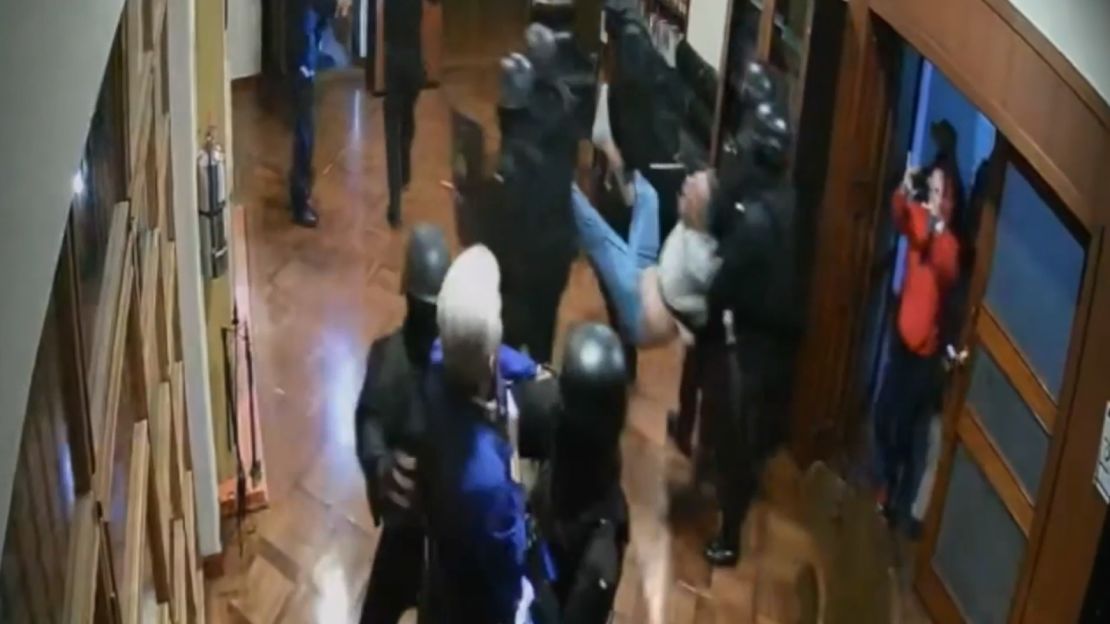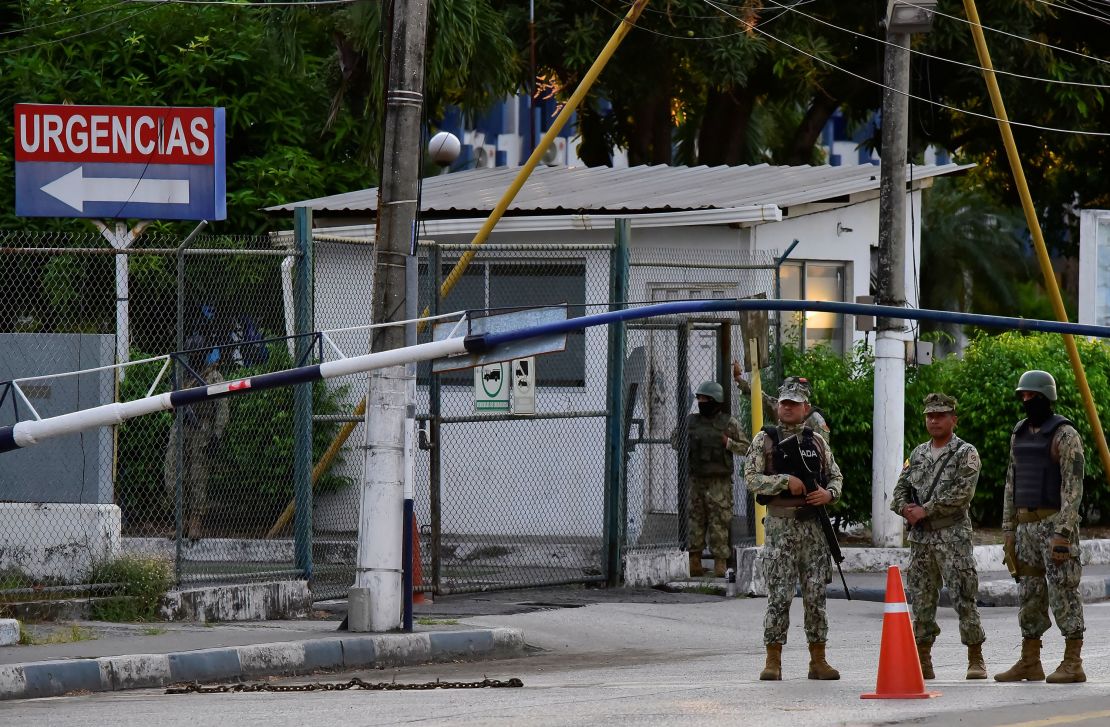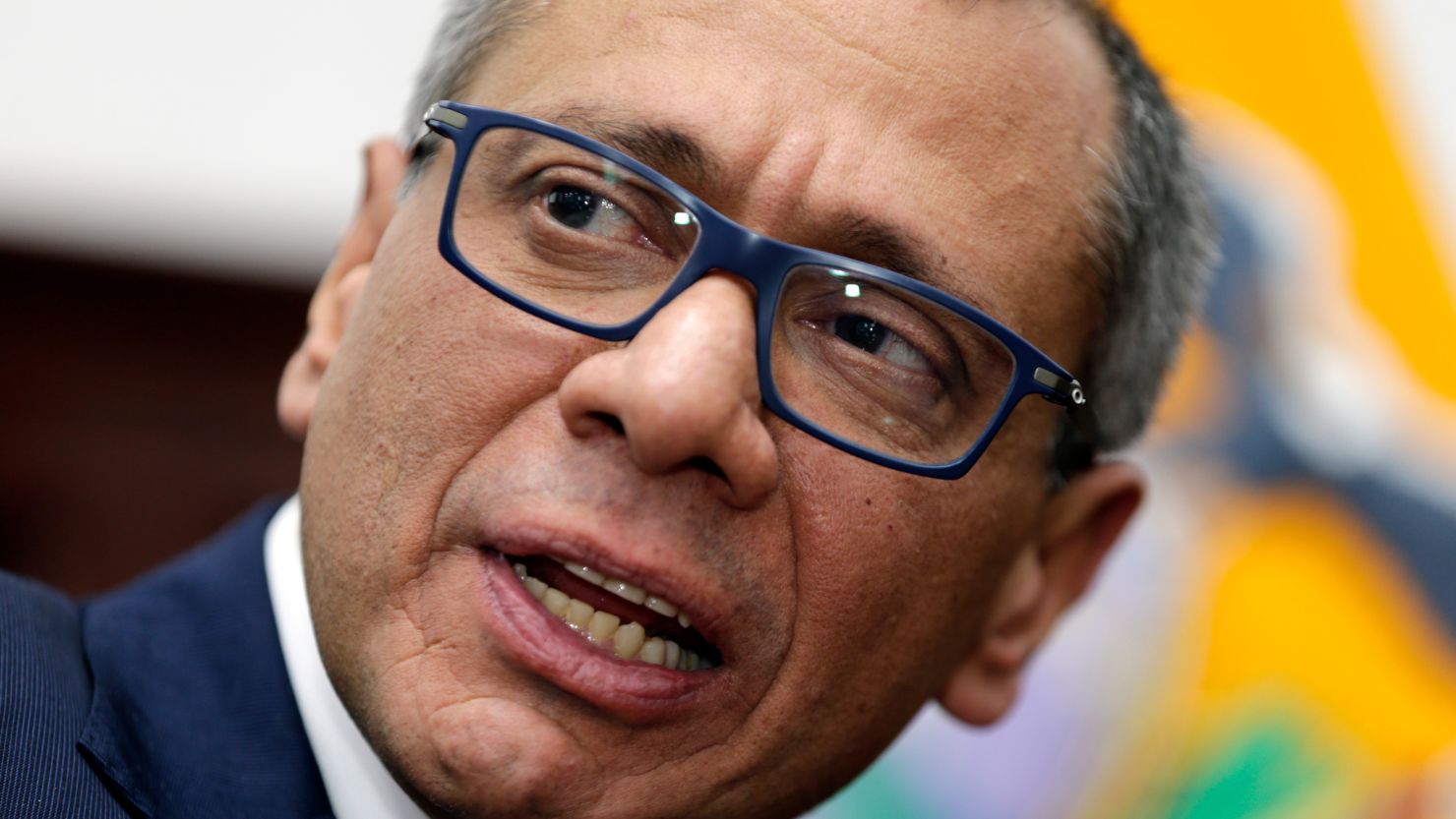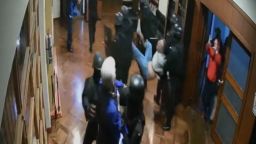Ecuador’s former vice president Jorge Glas on Wednesday started a hunger strike in a Guayaquil maximum security prison, where he has been held since Saturday, a member of his team told CNN.
“He is in a hole, without light,” the source said.
On Monday, Glas was hospitalized after refusing to eat food provided to him in prison, Ecuador’s national prison agency SNAI said. He returned to prison on Tuesday after being discharged from the hospital.
Glas was first imprisoned on Saturday, a day after Ecuadorian police arrested him in a controversial raid at Mexico’s embassy in Quito, where he was seeking political asylum after being accused of corruption by Ecuadorian prosecutors.
Glas has rejected the accusations.
On Sunday, his lawyers filed an appeal of habeas corpus, a legal principle that allows people who believe they are being held unlawfully in prison or detention to challenge it. Successful challenges can lead to a detainee’s release.
SNAI told CNN on Wednesday that Glas will have a hearing on the habeas corpus appeal this Thursday.
The agency did not comment on the hunger strike.
Fallout over embassy raid grows
The news comes as the political fallout surrounding the storming of the embassy continues to grow.
A host of Latin American countries have rallied around Mexico, which has condemned the raid as a “flagrant violation of international law” and has filed a case against Ecuador at the International Court of Justice in addition to breaking off diplomatic ties.
On Wednesday, the Organization of American States (OAS) approved a resolution condemning Ecuador’s actions in storming the embassy.
Twenty-nine countries voted in favor of the resolution, while Ecuador voted against, a video of the meeting on OAS’s YouTube account showed. Mexico was absent for the vote, as was Venezuela. El Salvador was the only country to abstain.
The meeting, convened at the requests of Bolivia and Colombia, saw Colombia present a draft resolution titled, “Intrusion of the Ecuadorian police into the Embassy of Mexico in violation of the Vienna Convention on Diplomatic Relations, and the Institution of Diplomatic Asylum.”

The resolution “strongly condemned” the raid on the Mexican embassy and the “acts of violence against the well-being and dignity of the mission’s diplomatic staff,” according to a copy obtained by CNN Espanol.
The resolution also called on member states to respect the “privileges and immunities” of diplomatic missions, and fulfill their obligations under the Vienna Convention on Diplomatic Relations to ensure the “inviolability of diplomatic premises and personnel is fully respected and upheld, without exception.”
Ecuador and Mexico were urged to initiate dialogue and take immediate measures to resolve the matter in accordance with international law, according to the resolution.
Ecuador defends raid
Ecuador’s deputy minister of foreign affairs Alejandro Dávalos defended his country’s actions, arguing it was Mexico that, in granting asylum to Glas, had violated the Vienna Convention.
Mexico’s actions were unlawful because Glas had been “accused” and “found guilty” of crimes, he told the meeting, and the raid was necessary given “that a common delinquent simply had sought to flee.”
Glas has been accused by the Ecuadorian authorities of embezzling government funds meant to help rebuild after a devastating 2016 earthquake. He has previously been convicted twice on corruption charges. His team say Glas, who served under leftist ex-President Rafael Correa between 2013 and 2017, is the subject of political persecution.

“It is not lawful to offer asylum to persons who upon asking for asylum are before competent courts accused of common crimes or worse yet when they have already been condemned, found guilty…without having done the time or paid the fines imposed,” Dávalos said.
“Foreign diplomats owe to the host country their noninterference in its domestic relations,” the envoy added, in a reference to the Mexican embassy.
Regarding the meeting’s call for dialogue and resolution, he said that “won’t happen until we find new basis for bilateral relations that is respectful of international law and our own law.”
This is a developing story and will be updated.
Correction: An earlier version of this story incorrectly attributed the remarks before the OAS. They were made by Ecuador’s deputy minister of foreign affairs Alejandro Davalos.

